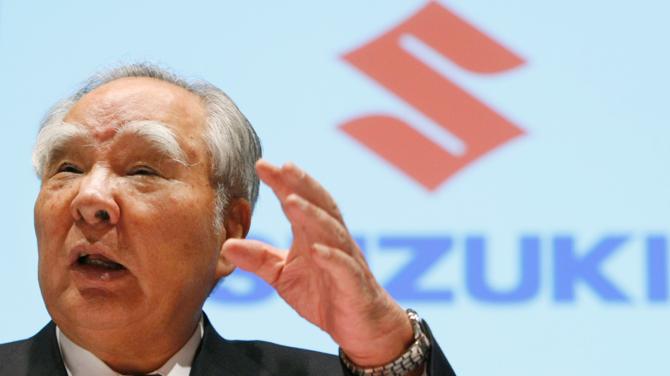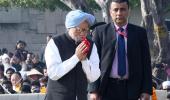'Without his vision and foresight, his willingness to take a risk that no one else was willing to take, his deep and abiding love for India, the Indian automobile industry could not have become the powerhouse that it has become.'

In April 1982, when Osamu Suzuki, then president of the Suzuki Motor Corporation (SMC), signed a memorandum of understanding with the Indian government company Maruti Udyog Limited to manufacture an 800 cc car (which later became the iconic Maruti 800), a carry van, and a pick-up truck, even the Japanese embassy in Delhi was reportedly not in favour of the deal.

'Generally, Japanese companies invested in foreign companies after they saw successful investments being made by bigger Japanese firms. SMC, at that time, was hardly a leader. India's political closeness to the erstwhile USSR and the strong socialist thinking in industrial policy were contrary to Japanese beliefs,' Maruti Suzuki India Limited (MSIL) Chairman R C Bhargava wrote in his 2010 book The Maruti Story, which he wrote along with senior journalist Seetha.
Bhargava, then an IAS officer working at Maruti, had met Suzuki for the first time just a month before the MoU was signed.

'Normally, the Japanese conduct their own market survey before making any major investment decision. No such exercise had been undertaken by SMC,' Bhargava recalled.
'The giants of the Japanese automobile industry, like Toyota, Nissan, Mitsubishi and Honda, were not in India. Being a minority partner in a government company was itself seen as a recipe for disaster,' Bhargava added.
The embassy of Japan in India was 'understood to disfavour' the project. 'Suzuki took the decision to enter India in less than two months after the first meeting -- surely an all-time record. Not surprisingly, the reaction in Japan was less than positive. Business circles were sure the venture would fail and SMC would withdraw in a few years,' Bhargava said.
However, about a year-and-a-half later, the Maruti 800 was launched, changing the automobile landscape of India forever. The car was an instant hit.

In the first year of production, about 850 units of the Maruti 800 were sold when the overall passenger vehicle sales in the country stood at about 40,000 units.
Last financial year, MSIL produced a total of 2.135 million vehicles and earned revenues of Rs 1.35 billion.
Today, MSIL is India's largest carmaker with more than 40 per cent market share by volume.
Suzuki was awarded the Padma Bhushan in 2007 by the Indian government for his contribution to developing the country's economy through the automobile sector.

Bhargava, 90, on Friday said: "I have lost someone who was closer than a brother to me. He changed my life and showed how nationality is no barrier to people building unbreakable bonds of trust in each other. He was my teacher, mentor and a person who stood by me even in my darkest days.
"If I played a role in the success of Maruti, it was because I was his student and he had taught me how best to grow a company and make it competitive."
"Without his vision and foresight, his willingness to take a risk that no one else was willing to take, his deep and abiding love for India, and his immense capabilities as a teacher, I believe the Indian automobile industry could not have become the powerhouse that it has become," Bhargava added.
"Millions of us in this country are living better lives because of Osamu San."










 © 2025
© 2025